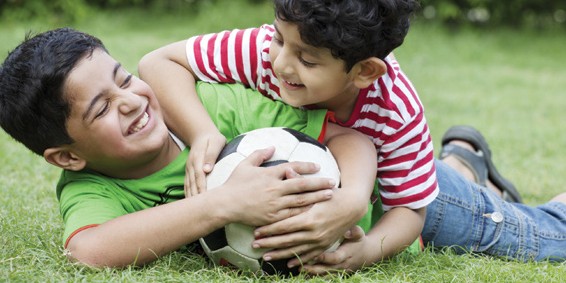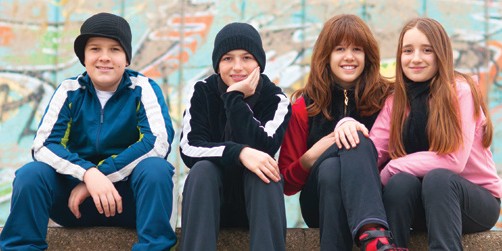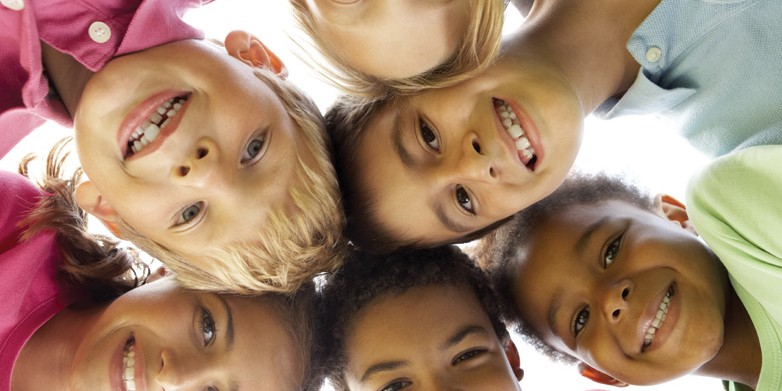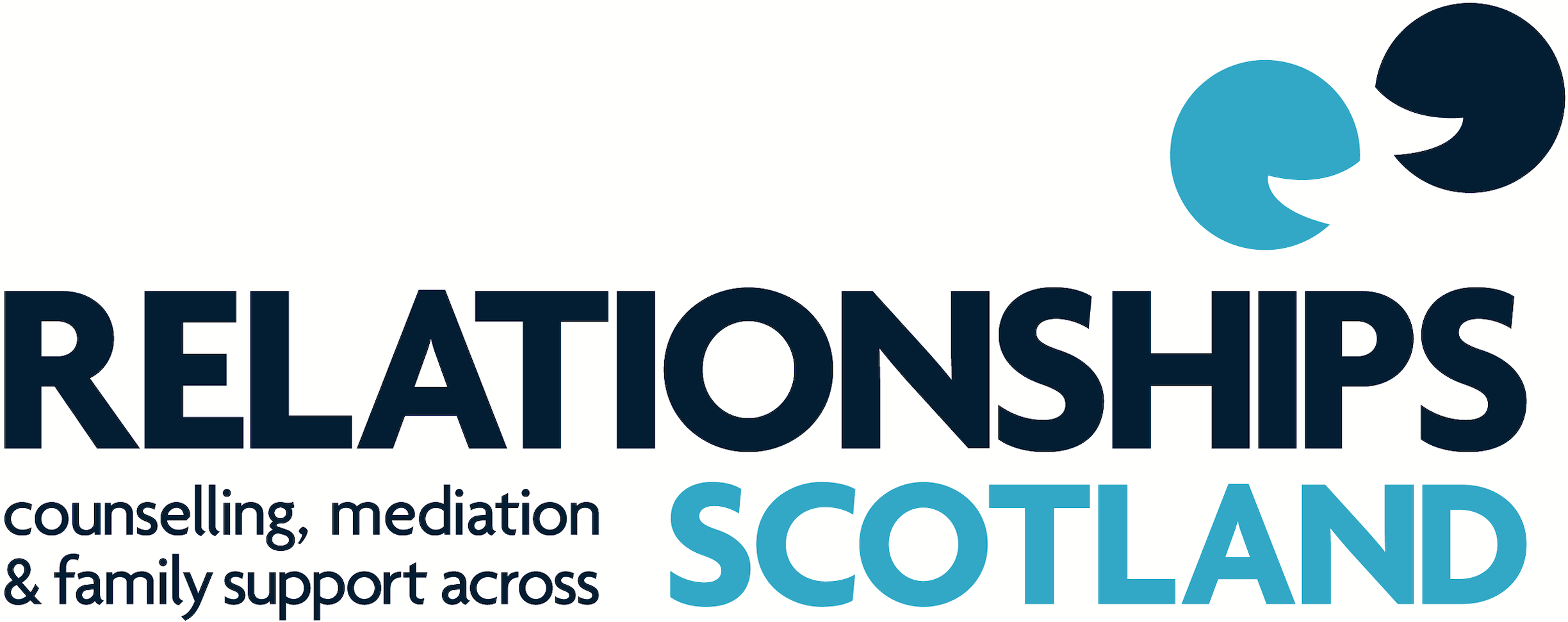
Families Come in all Shapes and Sizes
The Messages for Parents booklet is available to download as a PDF document
About this informationWhen parents separate, children may have many changes to cope with. They can sometimes feel that their family has changed a lot and has become very different from other families. Often children whose parents separate also have to cope with their parents forming new relationships. This information will give you some ideas about how to help your children understand that families come in all shapes and sizes. |
|
|
 You can help your children to cope with the separation by supporting positive relationships. You can help your children to cope with the separation by supporting positive relationships. |
Supporting positive relationshipsIt can be helpful to keep some things the same for your children, particularly when they are trying to cope with the changes that separation can bring. Children may have a very positive relationship with their grandparents or other family members and might be worried that they won't be able to see them as often. As parents, you can help your children to cope with the separation by supporting these positive relationships. |
Take your time
It can be exciting to start a new relationship and you might be keen that your children are part of this. It can help if you take your time to get to know the new partner in your life and think carefully about whether this new relationship is serious before you introduce them to your children. Children may become attached to your new partner and if the relationship doesn't last this can be another loss for your children to cope with. This will also give you the chance to make sure that it is OK for your new partner to be around your children.

Give your children time to adjustIt is important to think about whether your children are ready to be introduced to a new partner. Remember their timescale may be different from yours. A new partner may mean a new beginning for you, but for your children it might be a reminder that you and their Mum or Dad are not going to get back together. If your children have recently had to cope with lots of changes in their lives, it can help them if you delay introducing them to new partners. |
PrepareYour children may be keen to know whether you are seeing someone or not. Remember children can often see through “we are just good friends”! It is better to be prepared to answer their questions honestly. You will be the best judge of how much they need to know. They might find it helpful to know that you are spending time with someone and that if the relationship were to become more serious, you would let them know. They might need some reassurance that, although you are spending time with someone else, it doesn't change how you feel about them. |
|
|
 Your children might need some reassurance that, although you are spending time with someone else, it doesn't change how you feel about them. Your children might need some reassurance that, although you are spending time with someone else, it doesn't change how you feel about them. |
|
|

Your children's other parent
It can be helpful to discuss introducing your new partner to your children, with their other parent. This can be an opportunity to provide reassurance about parenting roles. Depending upon how your relationship ended this may be difficult. However it is important that your children know that they are allowed to talk about your new partner with you and their other parent. Both of you can then be alert to changes in your children's behaviour and be able to offer them support in managing this change.
Your children have their own thoughts and feelingsYour children need your help to keep their feelings separate from your feelings. While you may have a new partner whom you think is great, your children may not think or feel the same way. They may need some time to get to know your new partner. You can help them by giving them space and trying to listen to how they feel and what they think. Maybe your children's other parent has a new partner and you are struggling to come to terms with how you feel about this. You can help by trying to keep your feelings separate from your children's and let them know that it is OK for them to like their Mum or Dad's new partner. |
|
|
 You can help by trying to keep your feelings separate from your children's. You can help by trying to keep your feelings separate from your children's. |
|
|
Spending time with your childrenYour children may resent having to share the time that they have with you with your new partner, or they may worry that you will love your new partner more than them. Your new partner may have children that you spend time with, or you and your new partner may have a child together. This can be difficult for children. It can help to reassure your children if you plan to spend time regularly with them on their own. |
|
|
 It can help to reassure your children if you plan to spend time regularly with them on their own. It can help to reassure your children if you plan to spend time regularly with them on their own. |
|
|

Families come in all shapes and sizesIt can take time for children to get used to a new partner and other children, and vice versa. It is important that this is not rushed and everyone is given space and time to get to know each other. Whatever shape or size your family is, supporting healthy relationships between your children and the adults in their lives is important. Whether you are a Mum or a Dad or a new partner, try to speak positively to your children about the other adults and children in their lives. |
|
|
 Whether you are a Mum or a Dad or a new partner, try to speak positively to your children about the other adults and children in their lives. Whether you are a Mum or a Dad or a new partner, try to speak positively to your children about the other adults and children in their lives. |
|
|
Support
Sometimes parents can find it difficult to make arrangements for their children with their ex-partner or talk about parenting issues. They might be finding it difficult to come to terms with the breakdown of their relationship or they might be worried about the impact of separation on their children. It's OK to ask for help.
Relationships Scotland's network of Member Services supports individuals, couples and families experiencing conflict and relationship difficulties across all of mainland and island Scotland. This support includes family mediation, counselling, child contact centres and other family support services.
Some Services also provide support directly to children and young people affected by separation such as meeting with children and young people as part of the mediation process, children and young people's counselling and children's groups
Safety
Some of these ideas may not fit your situation if you have concerns about your own safety or the safety of your children.
This might be due to violence or abuse, alcohol or substance misuse, or other issues. Professional advice and help is recommended, see resources on our website www.relationships-scotland.org.uk/family-support.
Continue reading
The Messages for Parents booklet is available to download as a PDF document
References
- McGhee, C. (2011). Parenting Apart. New York: Berkley Books.
- Mooney, A. et al. (2009). Impact of Family Breakdown on Children's Well-being: Evidence Review. Thomas Coram Research Unit, University of London.
- Reynolds, J. et al. (2014). Parental Conflict: Outcomes and interventions for children and families. Bristol: Policy Press.
- Woodall, K. & Woodall, N. (2009). Putting Children First: A Handbook for Separated Parents. London: Piatkus Books Ltd.
